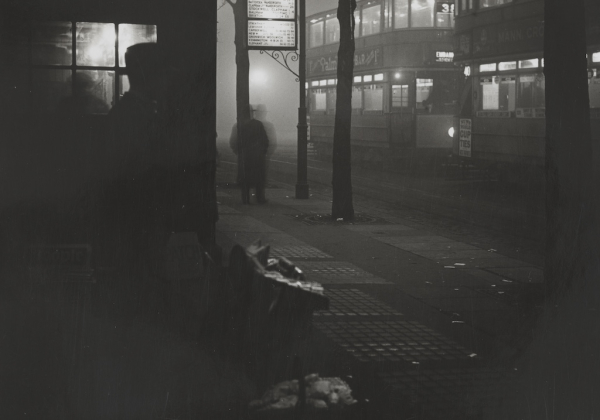Suche
Beiträge, die mit ArtificialScarcity getaggt sind
"Programs like the New Deal, the GI Bill, or the UK’s vast program of counsel housing showcased Western governments not just as pillars of capitalist values but also as architects of quasi-communistic structures. Initiatives like the Works Progress Administration or the military itself demonstrated state capacity for collective organization on a mass scale.
The postwar boom lifted millions of regular (predominantly white) people into new middle-class lives typified by safety, social dignity, consumerism, creative opportunity, and rest. Advances in automation, building materials, and agriculture supported this transformation, which proved that governments could create powerful systems of public good overnight. By the 1960s, the children of those who had demonstrated this collective power dreamed of applying that capacity on a global scale, regardless of race, gender, and nationality.
Instead, we got nothing but scarcity.
In Acid Communism — a title that winks at our need to re-aestheticize everyday life, elevate our consciousness, and see through the paper tiger of capitalist realism — Fisher points to scarcity and artificial restriction as the primary generator of wealth for those in charge of the postwar order.
Inflation was the buzzword of the 2024 election, which was due in part to real scarcity — as were the various supply chain crisis during the pandemic, which made the richest Americans 40 percent richer. But corporations have also been price-gouging without consequence, creating a form of artificial scarcity that erodes the value of pay increases through inflation. Fisher identifies this pattern as a defining feature of neoliberal capitalism: “A system that generates artificial scarcity in order to produce real scarcity; a system that produces real scarcity in order to generate artificial scarcity.”"
https://jacobin.com/2025/01/mark-fisher-neoliberalism-acid-communism/
#Capitalism #Neoliberalism #LateStageCapitalism #ArtificialScarcity #Abundance #CapitalismRealism
The postwar boom lifted millions of regular (predominantly white) people into new middle-class lives typified by safety, social dignity, consumerism, creative opportunity, and rest. Advances in automation, building materials, and agriculture supported this transformation, which proved that governments could create powerful systems of public good overnight. By the 1960s, the children of those who had demonstrated this collective power dreamed of applying that capacity on a global scale, regardless of race, gender, and nationality.
Instead, we got nothing but scarcity.
In Acid Communism — a title that winks at our need to re-aestheticize everyday life, elevate our consciousness, and see through the paper tiger of capitalist realism — Fisher points to scarcity and artificial restriction as the primary generator of wealth for those in charge of the postwar order.
Inflation was the buzzword of the 2024 election, which was due in part to real scarcity — as were the various supply chain crisis during the pandemic, which made the richest Americans 40 percent richer. But corporations have also been price-gouging without consequence, creating a form of artificial scarcity that erodes the value of pay increases through inflation. Fisher identifies this pattern as a defining feature of neoliberal capitalism: “A system that generates artificial scarcity in order to produce real scarcity; a system that produces real scarcity in order to generate artificial scarcity.”"
https://jacobin.com/2025/01/mark-fisher-neoliberalism-acid-communism/
#Capitalism #Neoliberalism #LateStageCapitalism #ArtificialScarcity #Abundance #CapitalismRealism

Mark Fisher’s Specters of Scarcity
The ghostly emptiness of capitalist realism obscures the potential for collective joy and abundance. Mark Fisher’s writing offers a glimpse of the possibilities that lie beyond the seeming inevitability of the present.jacobin.com
